Na toba levu or the ‘great harbour’ – it’s a fitting description for our country’s chief maritime port of entry, known commonly as the Suva Harbour.
It is the heart of trade, commerce, tourism, as well as inter-island and international travel.
A vital component of our economic lifeline.
Years of neglect, however, has resulted in numerous parts of the harbour being labelled as derelict zones, where the corroding remains of ships have been left to decay and fall apart, contributing to further environmental degradation.
The tide, however, is beginning to turn.
The Captain Johnathan Smith fund was officially launched this week marked by heartfelt tributes to the late seafarer who dedicated his life to ocean conservation and protection.
Boosted by a generous donation of US$1 million from billionaire philanthropist Ted Waitt and his Waitt Institute, the fund will support and accelerate efforts towards the total removal of derelict vessels within the Suva Harbour and facilitate the restoration of its environmental vitality.
Speaking at the event, Mr Waitt did not hold back.
“When I look at these vessels, I get angry,” he said.
“They are symbols of years of exploitation of Fijian waters and resources. The fish stocks and reefs belong to the citizens of Fiji, not corporations or foreign interests.”
Mr Waitt’s call to action came after a rain-soaked tour of the harbour aboard the iconic Uto Ni Yalo, which reignited memories of his first visit.
The derelict ships scattered across the water left a powerful impression.
“This has to be fixed,” he said firmly.
“It shouldn’t be allowed.”
The fund is named in honour of the late Captain Johnathan Smith, a beloved Fijian mariner and ocean advocate whose life was spent navigating and protecting these waters.
His widow, Mabel Shaw Smith, addressed the crowd with emotion and humour.
“If he were here today, Johnathan would be itching for these formalities to end so he could run to the Yacht Club Basin for an endless mix,” she joked.
“He loved this harbour, it was his office and his home.”
Captain Smith’s connection to the sea was deeply personal.
From sailing on the Uto Ni Yalo to working at a local dive centre, his life was lived in service to the ocean.
But he also spoke candidly about its brutal beauty.
“He would say, ‘the ocean has no love, no mercy, no compassion,’” Mabel recalled.
“It gives us none of those things. But it gives us 50 per cent of the oxygen we breathe.
“It regulates our climate. And it gives us all the beautiful things we love to eat.”
Captain Smith was buried at sea in 2021, a fitting farewell for a man who lived and breathed the Pacific.
His legacy now lives on through the fund bearing his name with hopes it will inspire action across Fiji.
Also speaking at the launch was Reverend James Bhagwan, who led Captain Smith’s funeral service.
Reflecting on the biblical passage John 21, in which Jesus urges Peter to “feed my sheep”, Mr Bhagwan likened the command to Captain Smith’s lifelong mission.
“Johnathan lived out that call, not only for people, but for the ocean,” he said.
“He taught us to love the sea not just in poetry or protest, but in practice, to rescue undersized crabs, to challenge pollution, to speak the truth even when it was inconvenient.”
The fund forms part of a broader vision that is part of Blue Prosperity Fiji’s program.
An ambitious plan to rejuvenate marine ecosystems and empower communities to steward their ocean resources.
During a recent dive trip with marine scientist Dr Enric Sala of National Geographic, Waitt and Fiji’s Minister for the Environment descended into Suva Harbour’s depths — only to be met by silence.
“We saw maybe two little fish,” Mr Waitt lamented.
“It was depressing. Of all the places in the Pacific, it was one of the more depleted. But it doesn’t have to be that way. You can bring it back. It’s in your control.”
The derelict ships, many abandoned by foreign business interests or defunct operators, have long been a blight on the harbour’s health.
Their removal will be a complex and costly process, but stakeholders are united in their resolve.
Mr Waitt hopes this is just the beginning.
“By cleaning up this harbour, we hope it sends a message to all Fijians, that you can take control. That this is the beginning of a new day.”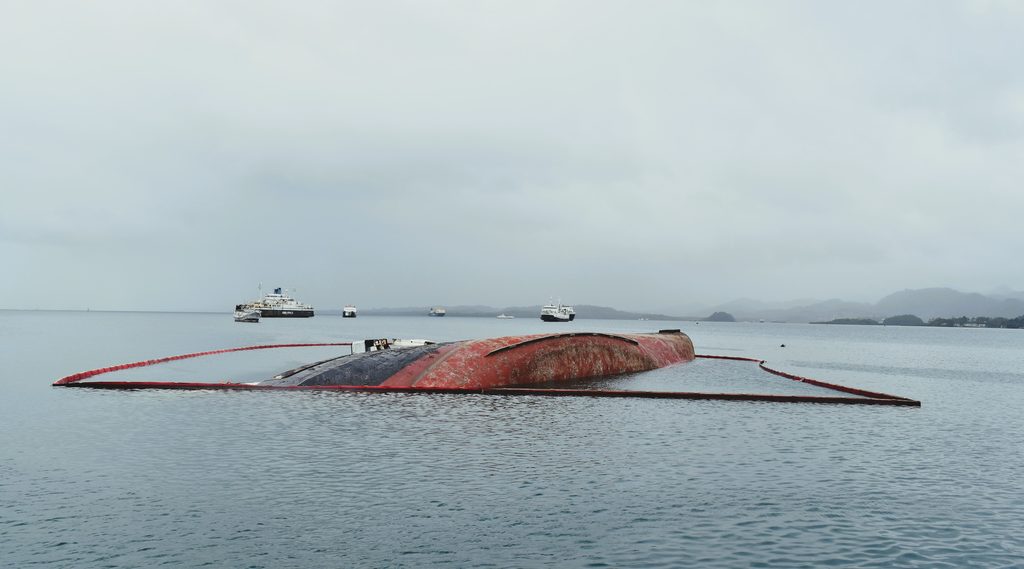
A half submerged commercial vessel in the middle of Suva Harbour. Picture: ALIFERETI SAKIASI
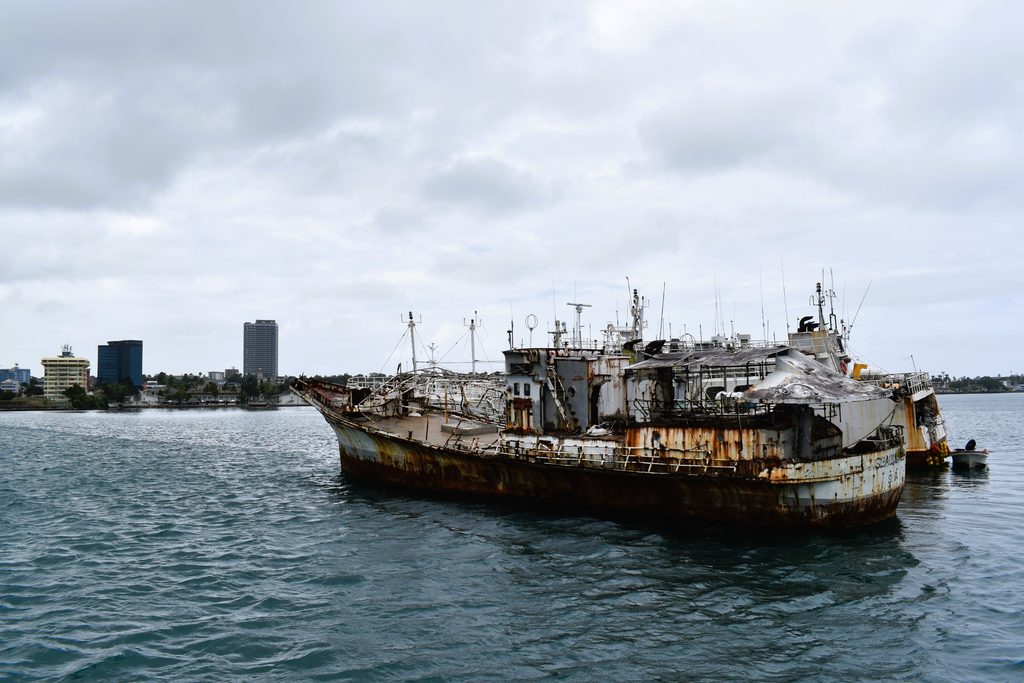
A derelict vessel facing towards the city of Suva. Picture: ALIFERETI SAKIASI
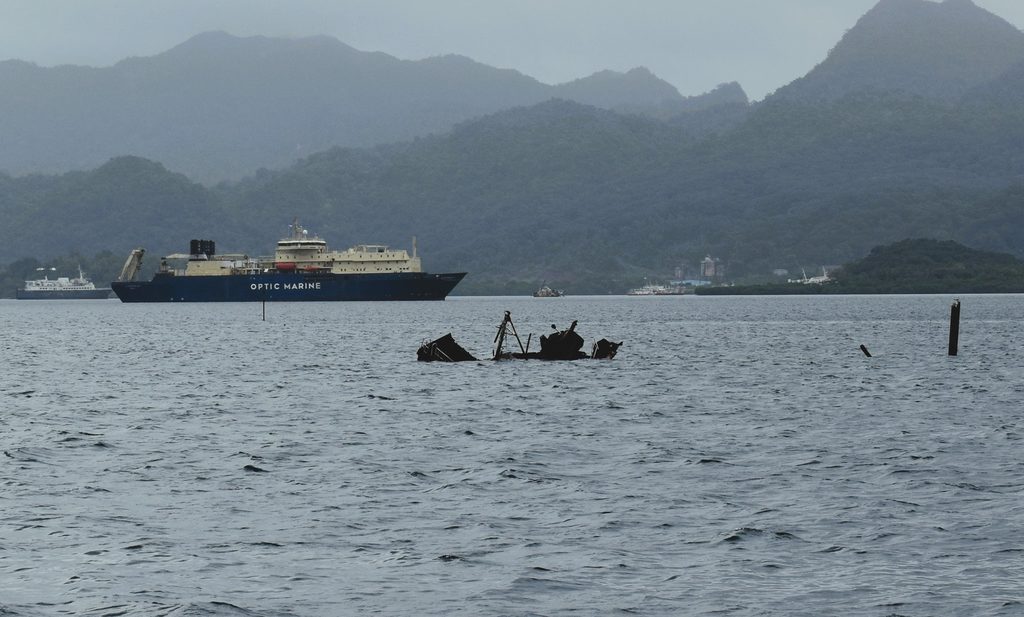
The wreckage of a vessel is visible just above the water.
Picture: ALIFERETI SAKIASI
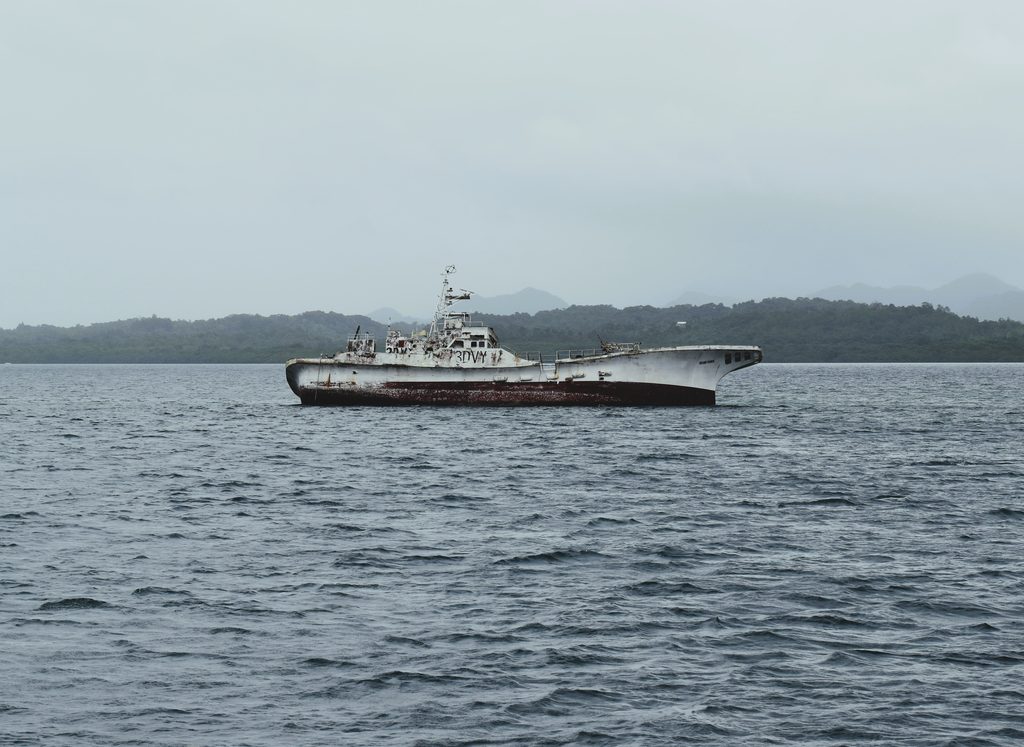
A derelict fishing vessel sits above the reef that surrounds the harbour. Picture: ALIFERETI SAKIASI
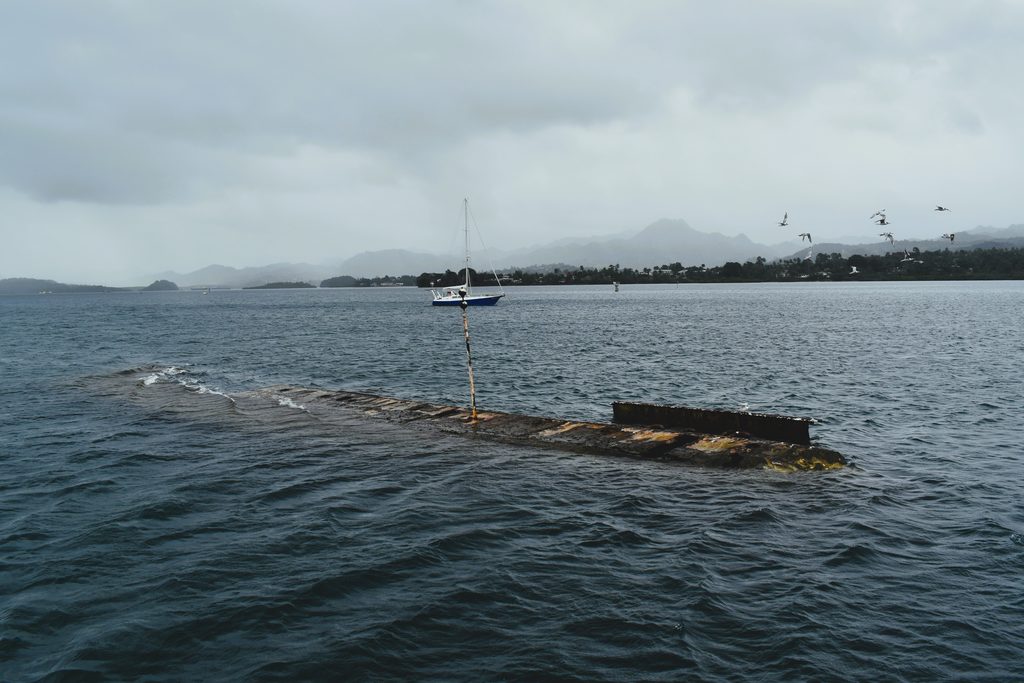
The wreckage of an entire vessel. Picture: ALIFERETI SAKIASI


